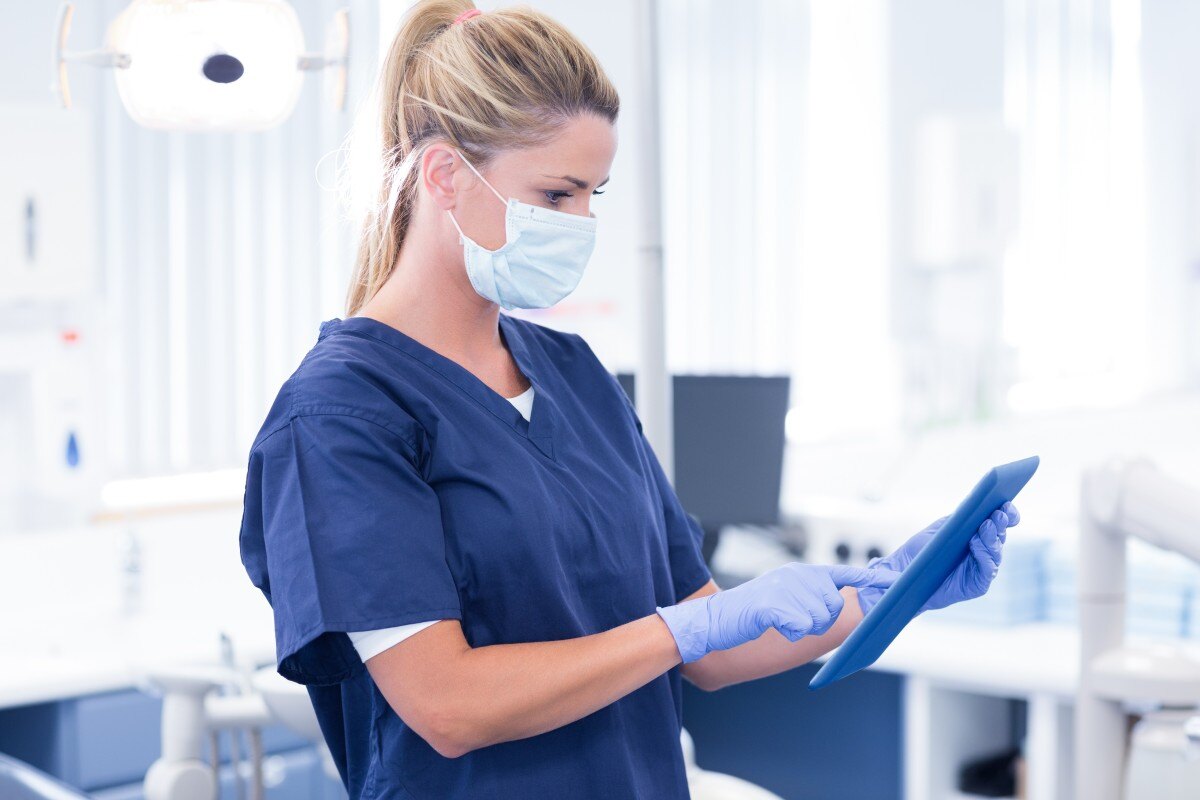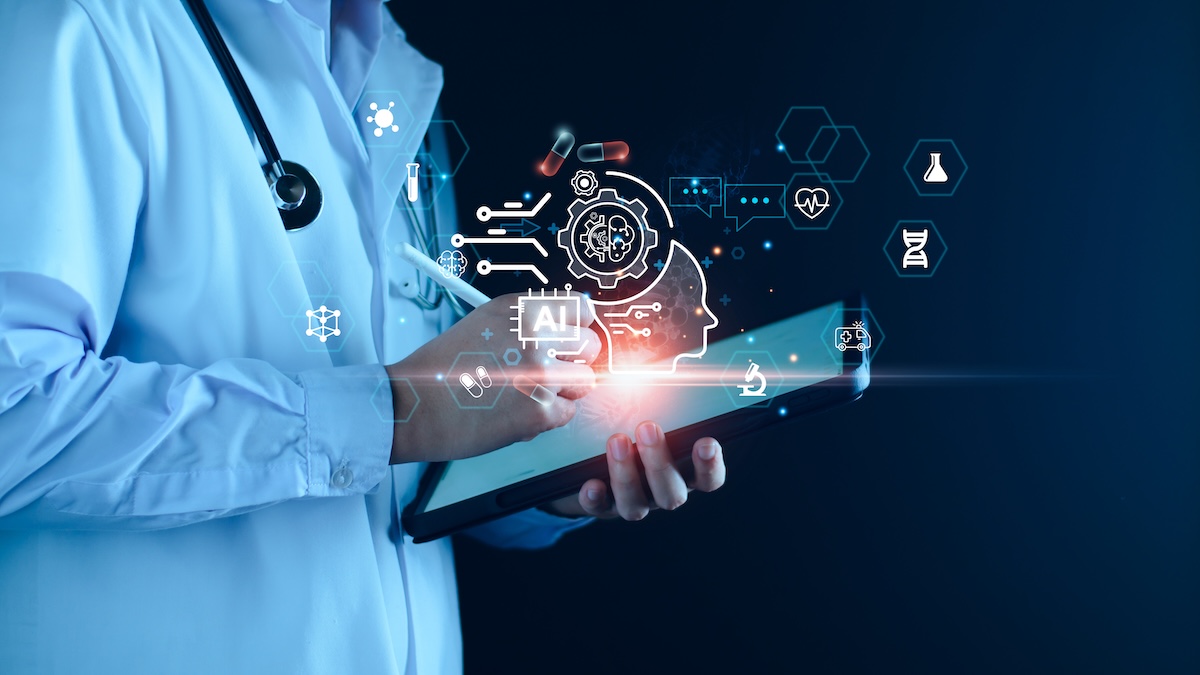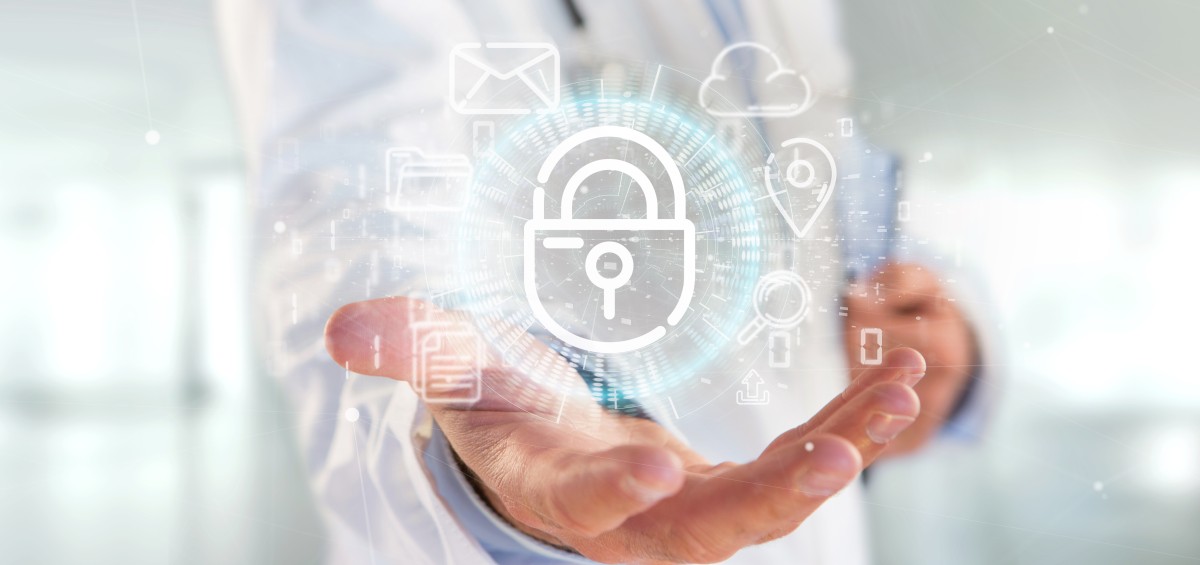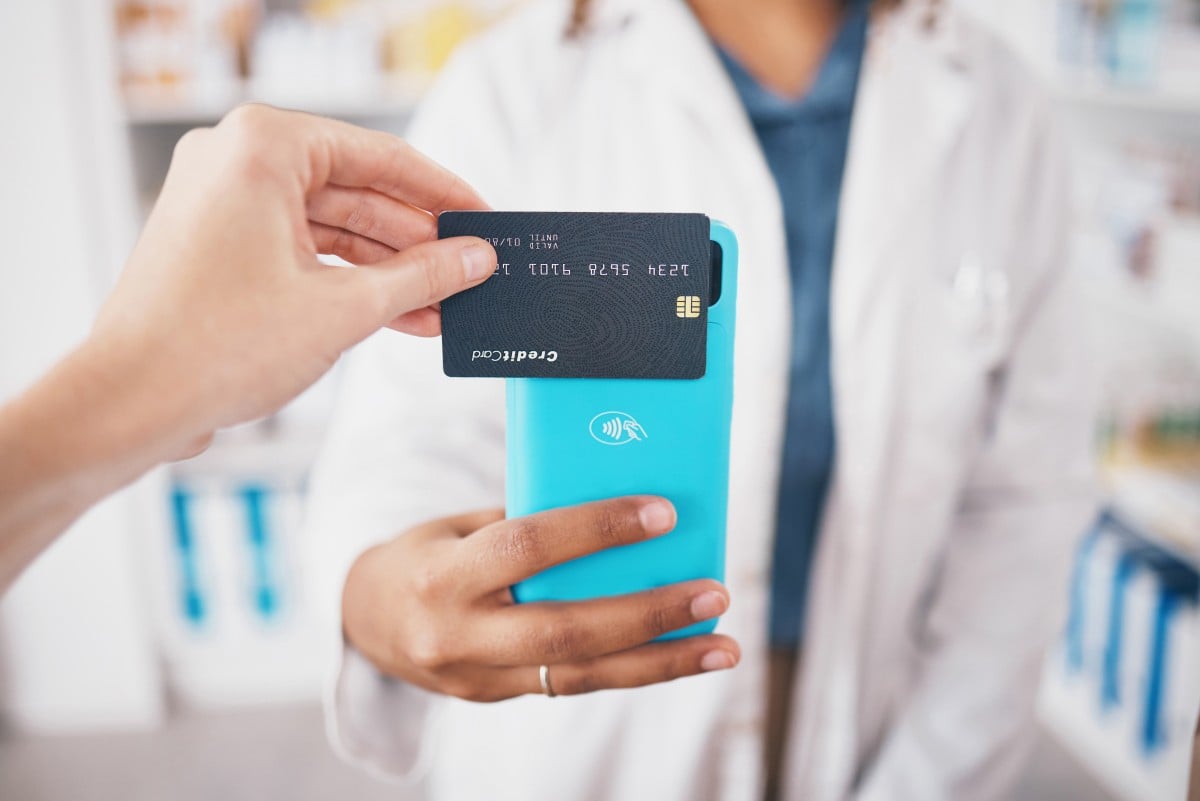Using Patient Education Videos to Support Preventive Care Strategies
As a healthcare provider, you know prevention saves lives. From routine screenings and lifestyle counseling to vaccinations and early detection,...
5 min read
Robert McDermott Aug 15, 2024 12:52:00 PM
 Mobile devices are ubiquitous. You may be reading this on a smartphone now. There’s no doubt they’ve changed our lives and they’re changing the healthcare profession as well. It’s no longer just patients on screens in the waiting room; more and more we’re finding mobile devices being used by administrative staff and healthcare providers.
Mobile devices are ubiquitous. You may be reading this on a smartphone now. There’s no doubt they’ve changed our lives and they’re changing the healthcare profession as well. It’s no longer just patients on screens in the waiting room; more and more we’re finding mobile devices being used by administrative staff and healthcare providers.
With more mobile devices in healthcare come considerable concerns regarding healthcare data security. Thankfully, there are strategies to mitigate those risks while still capitalizing on the increased efficiency, flexibility, accessibility and cost savings mobile technology can provide for healthcare organizations.
Quick Links
First came digitization, including technology like EHRs and more. The next stage in the digital transformation of healthcare has been the rapid adoption of mobile devices.
From smartphones to tablets, mobile devices help healthcare professionals access patient records, communicate with colleagues, and monitor patient progress from virtually anywhere, leading to more efficient and effective care.
Recent statistics highlight this growing trend. In fact, recent research suggests that nearly 90% of healthcare providers use mobile devices in their daily operations. Further, more than 70% of providers believe mobile technology has significantly improved their healthcare workflow and patient care quality.
Similarly, patients are also increasingly relying on mobile devices to manage their health. In fact, nearly 65% of Americans use mobile devices to track health metrics, such as physical activity, heart rate, and medication adherence.
The rise of mobile devices in healthcare is not just a passing trend but a fundamental shift in how healthcare is delivered and experienced. The global mobile health market is expected to reach nearly 190 billion by 2025.
This shift presents numerous opportunities for improving patient outcomes and operational efficiency. That said, it also introduces new challenges, particularly in the realm of data security. As mobile device usage continues to grow, ensuring the security and privacy of healthcare data becomes paramount.
Despite potential challenges, the integration of mobile devices in healthcare offers numerous benefits extending well beyond convenience. These advantages significantly enhance both the efficiency of healthcare workflows and the quality of patient care.
Mobile devices enable healthcare professionals to access and update patient records in real time, reducing the time spent on administrative tasks and allowing for more focus on patient care. Similarly, other healthcare workflow tools, like cloud ePrescribing and more, may be completed on tablets, allowing providers to work on the go. This real-time access also facilitates faster decision-making and coordination among healthcare teams.
Patients can use mobile apps to stay in touch with providers, including scheduling appointments, accessing their health records, receiving medication reminders, making payments and communicating with their healthcare providers. This increased engagement helps patients take a more active role in managing their health, leading to better health outcomes.
Mobile devices support remote patient monitoring and telehealth services, allowing healthcare providers to track patients' vital signs and health status from afar. This capability is particularly beneficial for managing chronic conditions and reducing hospital readmissions.
With the ability for mobile devices to streamline operations, reducing the need for physical infrastructure, mobile devices can help healthcare organizations lower operational costs. Telehealth services, for example, can reduce the need for in-person visits, saving time and resources for both providers and patients.
Mobile devices provide healthcare professionals with the flexibility to not only work from various locations but to also work while on the move, without being tied to an office or desktop computer. This, in turn, enhances their ability to provide care in diverse settings, from hospitals to remote clinics and even patients' homes. This accessibility ensures that healthcare services are available to a broader population.
When it comes to improving not only better patient-provider communication but healthcare workflows, mobile devices represent a paradigm shift. Providers, with the integration of mobile devices are moving towards more efficient, patient-centered care. However, again, this shift underscores the importance of robust data security measures to protect sensitive health information in an increasingly digital landscape.
 The Challenges and Risks of Using Mobile Devices in Your Practice
The Challenges and Risks of Using Mobile Devices in Your PracticeAs we’ve mentioned, mobile devices offer numerous benefits for healthcare practices, but they also introduce a range of challenges and risks that must be carefully managed to ensure the security and privacy of sensitive health information.
Data Security Threats
Mobile devices, like other devices, are susceptible to various security threats, including malware, phishing attacks, and unauthorized access. Ensuring these devices are on secure networks and using robust security measures, such as encryption, regular security updates, and the implementation of strong authentication protocols, can help keep them safe.
Compliance with Regulations and HIPAA
Healthcare providers must comply with stringent regulations like HIPAA. It’s critical that mobile devices and the data they handle are compliant with these regulations, but that can be complex and requires continuous monitoring and updating of security practices.
Loss or Theft of Devices
What makes mobile devices so great also makes them easy to lose or steal, which can lead to unauthorized access to sensitive patient information. Implementing measures such as remote wipe capabilities and device tracking can help mitigate this risk.
Data Privacy Concerns
Mobile devices may transmit and store personal and health-related information, making them a target for data breaches. Ensuring patient data remains private involves implementing strict access controls and educating staff on best practices for data protection.
Interoperability Issues
Integrating mobile devices with existing healthcare systems and electronic health records can be challenging. Ensuring seamless interoperability requires careful planning, the right healthcare software platform and the use of standardized protocols to ensure data consistency and accuracy across platforms.
Network Security
Mobile devices are only as secure as the networks they’re connected to. Mobile devices used for healthcare purposes should never use public Wi-Fi. Ensuring mobile devices only use secure connections and virtual private networks (VPNs) can help protect data transmission.
User Training and Awareness
Much like networks, any implemented security protocol is only as strong as the users. Users who aren’t aware of, or who ignore, security safeguards are a risk. Healthcare staff must be adequately trained on the secure use of mobile devices. This includes recognizing phishing attempts, using secure passwords, and understanding the importance of regular software updates and security patches.
Addressing these challenges requires a comprehensive and strategic approach to integrating mobile devices into your practice.
 Keeping Mobile Devices in Healthcare Secure: Strategies and Tips
Keeping Mobile Devices in Healthcare Secure: Strategies and TipsThe benefits of mobile devices for healthcare practices are significant and with the implementation of these best practices and strategies, healthcare organizations can leverage the power of mobility and mobile devices to improve efficiency and care.
And, perhaps most importantly, work with a healthcare workflow platform provider who has designed their platform with mobile devices and their security needs in mind.
If you’re ready to meet that provider and explore that platform, book a demo with the iCoreConnect team today. Let’s get started boosting your efficiency, improving patient communication and convenience, enhancing flexibility, and saving costs–all while ensuring the security of your practice and patients.

As a healthcare provider, you know prevention saves lives. From routine screenings and lifestyle counseling to vaccinations and early detection,...

There’s no denying that the AI boom is here. The American Medical Association reports that 66% of physicians are currently using artificial...

If only managing your practice’s revenue cycle came with a crystal ball. You could spot claim denials before they happen, predict when patients might...

In 2003, more bills were paid via check than any other payment method. By 2012, that number plummeted, eclipsed by payment cards and ACH. This was...

It seems almost yearly now that a major cyber attack on various parts of the healthcare industry serves as a wake up call to healthcare providers...

“That’s how we’ve always done it” is called the most dangerous phrase in business for a reason. For many businesses, even healthcare practices,...